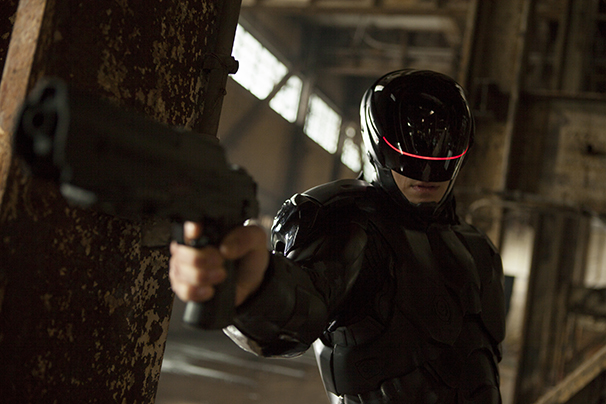
For decades, audiences have been captivated by fictional worlds created for the page and screen. Evident from the success of recent film projects like “The Hunger Games,” movies that take place in dystopian societies are making a comeback — the trend continues as Neil Burger’s highly anticipated “Divergent” comes out next month.
While early dystopian classics like Francois Truffaut’s 1966 “Fahrenheit 451” and Stanley Kubrick’s 1971 “A Clockwork Orange” have remained relevant in the past 50 years, there is a dystopian trend in modern cinema.
Perhaps the most well-known examples are the widely popular movie adaptations of Suzanne Collins’ “Hunger Games” series. The novels explore what would happen if the government exerted complete control over its citizens while also demonstrating an exaggerated gap between social classes.
This year provides a fresh round of dystopian films to look forward to, including José Padilha’s remake of the ’80s classic “RoboCop,” which opens theatrically today and is set in a future, crime-ridden Detroit.
Next up is the screen adaptation of Veronica Roth’s novel “Divergent,” wherein rising star Shailene Woodley plays a girl living in a dystopian Chicago where the government forces conformity. In the real world, we value freedom and diversity, yet series like Roth’s are gaining popularity and publicity.
Dystopian societies have remained a popular subject for film throughout the decades, proving that audiences are entertained by almost any universe with miserable qualities.
Hyperbolic depictions of a government’s authority and the total oppression of free thought in films allow the audience to feel more at ease with the imperfections in the real world. In contrast to the movies, the flaws in our political system, the disparity between social classes and a myriad other issues seem acceptable in comparison. Perhaps watching a movie in which characters are punished for individuality or where Earth has been completely destroyed makes viewers thankful for the functioning — though flawed — reality of today’s situation.
Perhaps this recent surge of dystopian films reflects filmmakers’ plea for a closer examination of our current imperfect societies. Maybe the films’ horrid conditions are meant to melodramatically mirror the less-than-ideal circumstances of today’s culture so that we take such problems seriously.
The dismal imaginary contexts created in films provide an entertaining experience for moviegoers. Dystopian films take us to alternate worlds and distant universes, but these fictional settings may well have more in common with our world than we would like to think.
A version of this article appeared in the Feb 12 print edition. Rebecca Kim is a contributing writer. Email her at [email protected]






















































































































































